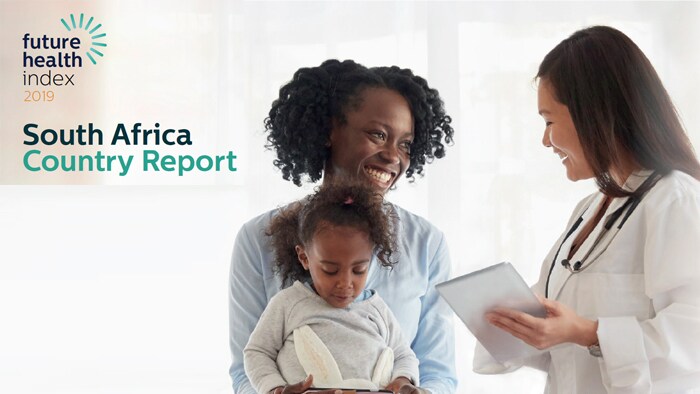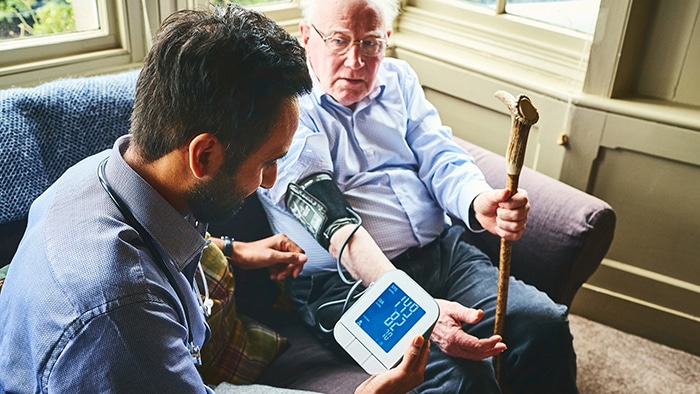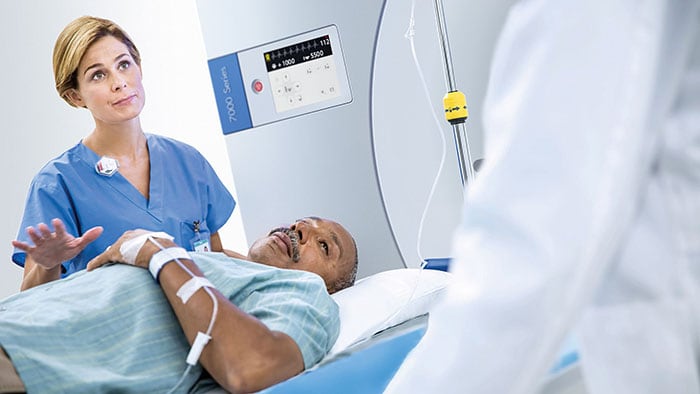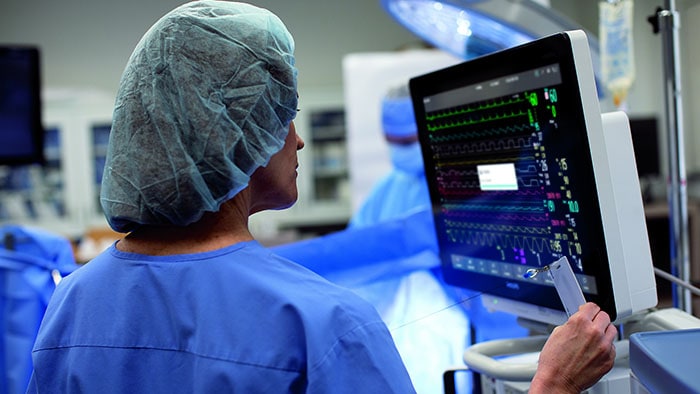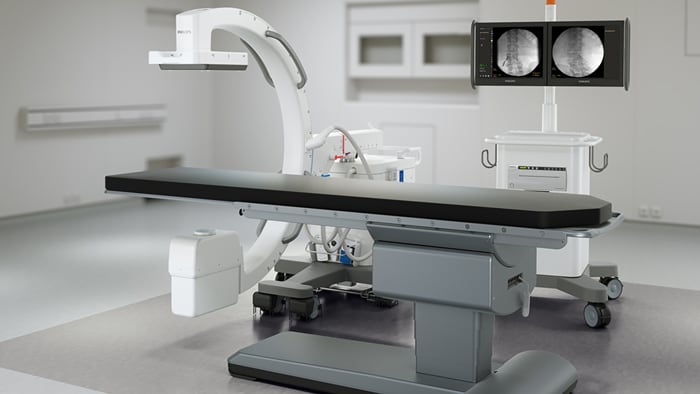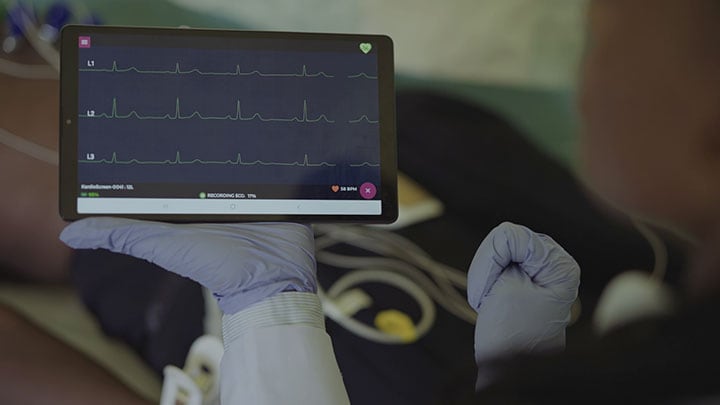Oct 28, 2019
Philips’ Future Health Index 2019 shows the need to place people at the heart of health tech in South Africa
Johannesburg, South Africa – Royal Philips (NYSE: PHG, AEX: PHIA), a global leader in health technology, today announced the publication of the South African results of its Future Health Index (FHI) 2019 report: ‘Transforming healthcare experiences: Exploring the impact of digital health technology on healthcare professionals and patients’1. The report reflects independent research commissioned by Philips, of what is required to accelerate the shift from volume-based to value-based care in the global drive for sustainable healthcare systems, with South Africa being a key country focus and one of the 15 countries surveyed. Now in its fourth year, the report focuses on the role digital health technology plays in improving both the individual citizen and the healthcare professional experience – two elements of the Quadruple Aim in healthcare. The other two elements are better health outcomes and lower cost of care. This year’s report also identified three key themes: engaged and digitally enhanced healthcare professionals, empowered patients with more control through access to data, and learning from forerunners like China, Saudi Arabia, India and Russia.
A keen appetite for digital healthcare technology
Engaged and digitally enhanced healthcare professionals: The research shows that healthcare professionals using digital health records already see a positive impact on quality of care (69%), their own satisfaction (64%) and patient outcomes (59%). Results of the FHI in South Africa revealed a keen appetite for digital healthcare technology and use of digital health records – with 75% of the country’s healthcare professionals reporting that their own experience has improved with digital access to a patient’s full medical history. However, only 40% are currently utilising digital health records, potentially in part because of challenges around infrastructure and the cost of investing in this infrastructure. This is significantly lower than the 15-country average of 76% of healthcare professionals currently using digital health records. “Telehealth – the remote access to and management of health – can, for example, bridge the gap for the 74% of South Africans who did not visit a healthcare professional when they had a medical reason to go,” said Jasper Westerink, CEO, Philips Africa. “Telehealth can not only drive greater access to care, it can also improve the patient experience by cutting down on the amount of time they need to wait to see a professional: 88% of patients reported having to wait over an hour to see a general practitioner, while 92% had to wait over an hour to see a specialist.” AI also has a vital role to play, with the majority (91%) of South African healthcare professionals feeling comfortable using AI to treat patients. In fact, the country’s healthcare professionals show more confidence in using the technology than their counterparts across all 15 countries surveyed: 79% are comfortable using it for patient monitoring, compared to the 15-country average of 63%, while 76% are comfortable to use it to flag patient anomalies, compared to the 59% 15-country average. Leveraging these technologies can therefore undoubtedly help achieve the Quadruple Aim by improving both the patient and healthcare professional experience, fostering better outcomes and lowering the cost of care.
While these challenges will remain a reality, the report broadly showed that where healthcare professionals are supported by technology, their own – and individuals’ – experience has been a positive one. This includes telehealth and AI, in particular.
Empowering patients to take control of their own health
Empowered patients with more control through access to data: Rather than focusing purely on the benefits that comes with introducing these technologies, the report highlighted the need to also place the patient at the heart of the technology to empower them to take control of their own health. This is a key finding of the South African FHI 2019. “Giving an individual access to their own health data makes them more likely to engage with it in a way that will improve the quality of care they receive. The same is true for South Africa, even though adoption is lagging in places and needs to be addressed,” said Westerink. Informed and empowered patients typically take better care of their health – and South Africans know they have a role to play, with 80% believing they have the biggest impact on their own health. Access to their digital health records would aid in maintaining their health, and of those who do not currently have access or don’t know if they have access, 65% said they wanted access to their records – especially if it made it easier for them to manage their health. In fact, 58% of South African patients with access to their digital health records said they were proactive in taking care of their health. Access to health data also proved to foster greater collaboration between patients and healthcare professionals: 84% of individuals with access to their records wanted their healthcare professionals to have access to it too. Healthcare professionals agreed that this collaboration was a constructive step forward, with 58% noting that patient access to their own health data positively impacted their experience in the last five years.
Using lessons from forerunners to put people at the heart of healthcare
Learning from forerunners: A key take-out of this year’s FHI was that South Africa can learn from forerunners such as China, Saudi Arabia and India, emerging countries that are successfully leapfrogging challenges by adopting digital health technology. Individuals in India, China, and Saudi Arabia using digital health technology or mobile apps frequently report that the information they receive from their digital health technology or mobile apps led them to contact a healthcare professional. South Africa falls below the 15-country average (46%) in terms of individuals tracking their own health indicators – 41% of patients who have seen a healthcare professional in the last year have taken action by tracking their health indicators.
Increasing not only the adoption, but also the utilization of digital health technology among South Africans could empower patients to adopt a more proactive attitude toward health management, ultimately improving healthcare outcomes
Jasper Westerink
CEO, Philips Africa
“Today’s Future Health Index report highlights that health and healthcare is all about people. For example, the patient-clinician relationship is highly symbiotic. In terms of each party’s well-being, what one side does affects the other and vice versa,” Westerink concluded. Since 2016, Philips has conducted original research to help determine the readiness of countries to address global health challenges and build efficient and effective health systems. Details on the methodology and a full list of sources are available here. To read the full report, visit www.philips.com/futurehealthindex-2019.
1 The Future Health Index surveys were fielded from March 4 to May 19, 2019 in 15 countries (Australia, Brazil, China, France, Germany, India, Italy, The Netherlands, Russia, Saudi Arabia, Singapore, South Africa, Poland, U.K. and U.S.) in their native language. The survey was conducted online and offline (as relevant to the needs of each market) with a sample size of 1,000 per market for individuals (general population) and 200 per market for healthcare professionals. The exceptions were the US and Germany, which each had slightly larger samples of healthcare professionals. For the general population audience, the survey is representative of key demographics e.g. age, gender, region, location type (rural/urban), income/SEL/education and ethnicity (where appropriate to ask). This was achieved through a mix of balancing and weighting. In Saudi Arabia and Brazil, the survey is nationally representative of the online population. The survey length was approximately 15 minutes for the U.S., Germany, and the Netherlands, and approximately 10 minutes for the remaining markets. The total sample from the survey includes 3,194 healthcare professionals (defined as those who work in healthcare as a doctor, surgeon, nurse practitioner, registered nurse, licensed practical nurse or nurse across a variety of specializations) and 15,114 individuals that represent the adult general population.
About Royal Philips
Royal Philips (NYSE: PHG, AEX: PHIA) is a leading health technology company focused on improving people's health and enabling better outcomes across the health continuum from healthy living and prevention, to diagnosis, treatment and home care. Philips leverages advanced technology and deep clinical and consumer insights to deliver integrated solutions. Headquartered in the Netherlands, the company is a leader in diagnostic imaging, image-guided therapy, patient monitoring and health informatics, as well as in consumer health and home care. Philips generated 2018 sales of EUR 18.1 billion and employs approximately 77,000 employees with sales and services in more than 100 countries. News about Philips can be found at www.philips.com/newscenter.
Topics
Contacts

Radhika Choksey Head of Marketing & Communications Philips Middle East, Turkey & Africa Cell : +31 62525 9000
